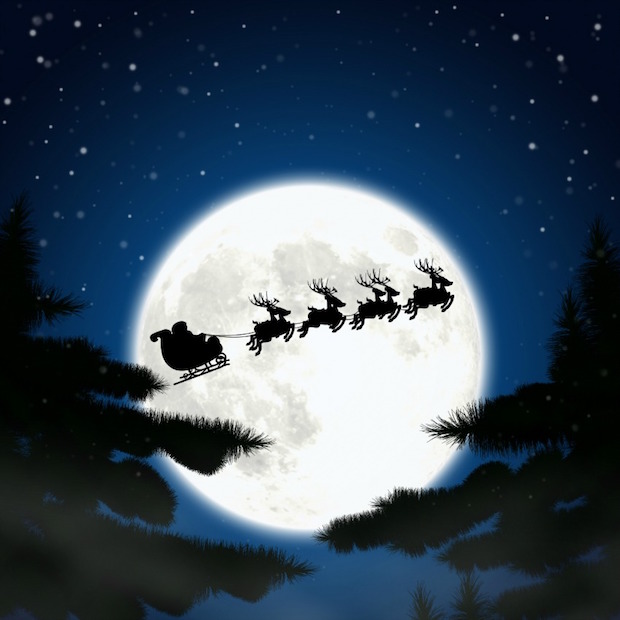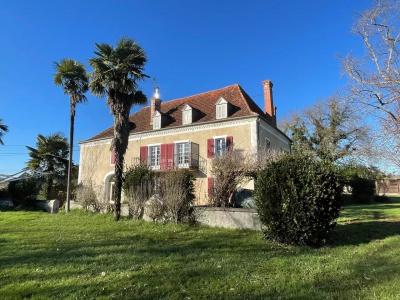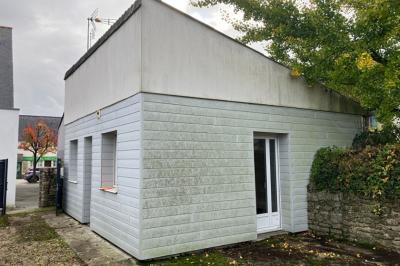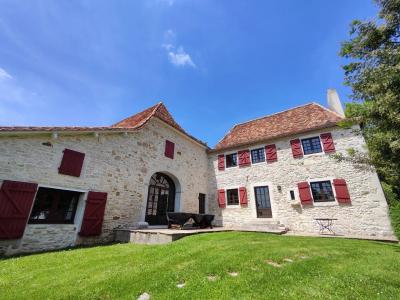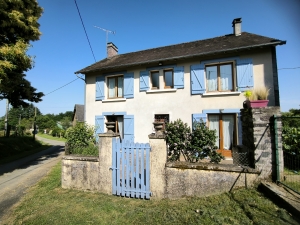You Know Dasher, and Dancer, and Prancer etc. But....
Do you know about the Dark Side of the French Rudolph?
Ah, it’s December, and baby, it’s cold outside! Don’t be a grinch about the weather, though. Even if Jack Frost is nipping at your nose, tis the season to be jolly!
Whether you’re in church listening to yuletide carols being sung by a choir or at home decking your halls with boughs of holly, this time of year is often a magical season for many. Memories from childhood come rushing back with something as simple as a smell or a movie. There’s a lot history in every family’s Christmas, and although mine never really sang Christmas carols, I’ve always been a big fan of the music (d’où [hence] the really horrible puns at the beginning of this article).
Reading a translation of something you’re already familiar with can benefit your foreign language acquisition and how studying the similarities and differences can bring a new dimension to a text. Even something as simple as a name change can make you consider a new aspect of the character.
L’onomastique (onomastics), the study of the origins and usage of names, should be considered in every literary analysis. Let’s take Perdita from 101 Dalmatians as an example. Her name derives from the Latin perdere, (soit en français perdre or in French, perdre) meaning lost. Perdita itself means “lost one — a very fitting name for the story. Mersault from Albert Camus’s L’étranger has a name that would have more significance for a French speaker than an English speaker*. There have been many papers that study Mersault’s name in relation to his actions in the book. Meurt sot (die stupid), pronounced the same, is often presented as an analysis of the character’s name.
* Same goes for the title, too, actually. L’étranger in French already has un double sens (two meanings) — in English the word can be translated back as stranger or foreigner. Reading a translation of this won’t allow you to understand its full significance.
This is all super interesting, Josh, but what does it have to do with Christmas? Sorry, got a little carried away! In 1823, a poem intitulé (called) “A Visit from Saint Nicholas” was published anonymously before being attributed to Clement Clarke Moore in 1837. Maybe you don’t know it by that title, but I’m sure if I give you the first line, you can complete it: ’Twas the night before Christmas…
It’s through this poem that Santa’s reindeer were all named for the first time. When the poem was translated, the reindeer’s names were also translated. Some were translated directly while others had brand new names attributed to them.
Want to delve deeper?
Look up all the reindeer’s attributes (for example, one of them is the strongest) and the meaning of their French names...
Tornade (Dasher)
Danseur (Dancer)
Furie (Prancer)
Fringant (Vixen)
Comète (Comet)
Cupidon (Cupid)
Tonnerre (Donder)
Éclair (Blitzen)
Well, there’s 8, but we’re missing “the most famous reindeer of all.”
Where is Rudolph, and when did he come into play?
Rudolph made his first appearance in 1939 in a short book written by Robert L. May. The song was adapted to song 10 years later by May’s brother-in-law. It was recorded by Gene Autry and hit #1 on the Billboard pop singles in December 1949. We all know the story… Poor little Rudolph was picked on by reindeer bullies until one Christmas Eve when Santa noticed him and his bright nose and asked him to guide his sleigh. Now a hero, all of Rudolph’s little haters became fans and “shouted out with glee.” A cute story.
Unless you know the French version. Then you’ll be surprised to learn just why Rudolph’s nose was red. And that it wasn’t Santa who discovered him. And you have to see happened before he could guide the sleigh. Anyway, here is the song!
Quand la neige recouvre la verte Finlande
When snow covers green Finland
Et que les rennes traversent la lande
And reindeer cross the heath
Le vent dans la nuit
The night wind
Au troupeau parle encore de lui
Still talks about him
On l’appelait Nez Rouge
They called him Red Nose
Ah comme il était mignon
Oh, he was so cute
Le pettit renne au nez rouge
The little red-nosed reindeer
Rouge comme un lumignon
Red like a light
Son petit nez faisait rire
His little nose made people laugh
Chacun s’en moquait beaucoup
Everyone made fun of it
On allait jusqu’à dire
They even said
Qu’il aimait boire un petit coup
That he liked to drink a little
Une fée qui l’entendit
A fairy that heard him
Pleurer dans le noir
Crying in the darkness
Pour le consoler
To console him
Lui dit :
Told him:
“Viens au paradis ce soir”
Come to Heaven tonight
Comme un ange Nez Rouge
Like a red-nosed angel
Tu conduiras dans le ciel
You’ll drive in the sky
Avec ton p’tit nez rouge
With your little red nose
Le chariot du Père Noël
Santa’s sleigh
Quand ses frères le virent d’allure aussi leste
When his brothers saw him with such supple style
Suivre très digne les routes célestes
Following the celestial routes with dignity
Devant ses ébats
Before his frolicking
Plus d’un renne resta baba
More than one reindeer was shocked
On l’appelait Nez Rouge
They called him Red Nose
Ah comme il était mignon
Oh, he was so cute
Le p’tit renne au nez rouge
The little red-nosed reindeer
Rouge comme un lumignon
Red like a light
Maintenant qu’il entraîne
Now that he’s guiding
Son char à travers les cieux
His sleigh across the skies
C’est lui le roi des rennes
He is the King of Reindeer
Et son nez fait des envieux
And his nose makes others jealous
Vous fillettes et garçons
You, little boys and girls
Pour la grande nuit
For the big night
Si vous savez vos leçons
If you know your lessons
Dès que sonnera minuit
When midnight tolls
Ce petit point qui bouge
The little dot that moves
Ainsi qu’une étoile dans le ciel
Like a far away star
C’est le nez de Nez Rouge
It’s Red Nose’s nose
Annonçant le Père Noël (x2)
Announcing Santa Claus
…what? So Rudolph’s nose was red because he would drink? Where did this fairy come from? And he had to go to Heaven before guiding the sleigh? Don’t you have to die first to go there? So many questions…
What do you think of the French version of Rudolph?
Just how do the French celebrate Christmas where you live or visit?
Blog submitted by: David at The French Property Network - Cle France.
This blog was originally posted on The French Language Blog pages.
